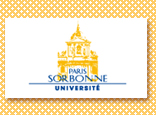| INSTRUMENTS
"PASSIVE" AND "ACTIVE" EXPLORERS OF NATURE
W.D. Hackmann, Scientific Instruments : "passive" and "active"
explorers of nature.
1) What is the meaning of "passive"
in the text? What is the meaning of "active"?
2) Give examples of "passive"
instruments and explain what their " passivity" consists in.
3) In a dictionary, an encyclopaedia
and on the Internet, look for Galileo, Kepler, and Priestley. (Hooke
too).
4) Compare information. Which
"Priestley" did you choose? Why?
5) Do optical instruments "enhance
the imperfect senses"? Comment?
6) What is an artefact? Why
were discoveries regarded with mistrust?
7) What is an a priori concept?
8) Visit the London Museum of
Science on the Internet and visualise orreries, globes, air pumps,
electrical machines, in George III gallery visible on this site;
give the precise addresses.
9) Find out two famous paintings
by Wright of Derby illustrating the fascination of the period for
orreries and air pumps. |



